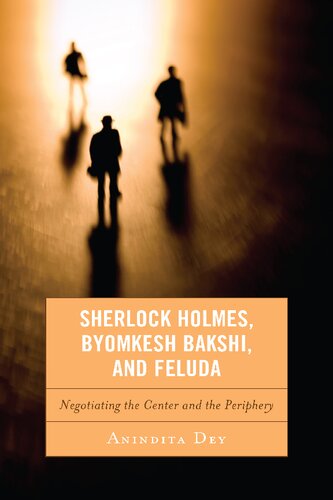

Most ebook files are in PDF format, so you can easily read them using various software such as Foxit Reader or directly on the Google Chrome browser.
Some ebook files are released by publishers in other formats such as .awz, .mobi, .epub, .fb2, etc. You may need to install specific software to read these formats on mobile/PC, such as Calibre.
Please read the tutorial at this link: https://ebookbell.com/faq
We offer FREE conversion to the popular formats you request; however, this may take some time. Therefore, right after payment, please email us, and we will try to provide the service as quickly as possible.
For some exceptional file formats or broken links (if any), please refrain from opening any disputes. Instead, email us first, and we will try to assist within a maximum of 6 hours.
EbookBell Team

4.8
54 reviewsSherlock Holmes, Byomkesh Bakshi, and Feluda: Negotiating the Center and the Peripherypresents a postcolonial reading of Conan Doyle’s canonical detective texts—Sherlock Holmes adventures, and some lesser known detective texts written by two Bengali (Indian) writers—Sharadindu Bandyopadhyay (1899-1970), and Satyajit Ray (1921-1992). The book proposes that in a postcolonial reading situation, the representation of Holmes problematizes the act of reading and also the act and discourse of inquiry. The fact that the Holmes adventures contribute to the hegemonic culture of “Anglo/Eurocentrism” is seen as a reinforcement of racial superiority among the “colonized.” This book studies how literary texts function as a signifier of a particular national identity, and can indicate the cultural construct of a state. It contends that only those texts which cater to the standards of global hierarchy are considered canonical, and indigenous texts, however significant, remain as "Other" literature. The book highlights colonial and postcolonial discourse in the Bengali detective texts and examines, how far Holmes has been able to reinforce racial dominance over the Indian detectives Byomkesh Bakshi and Feluda.